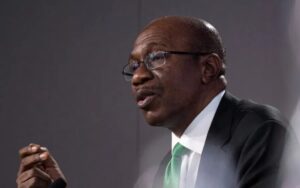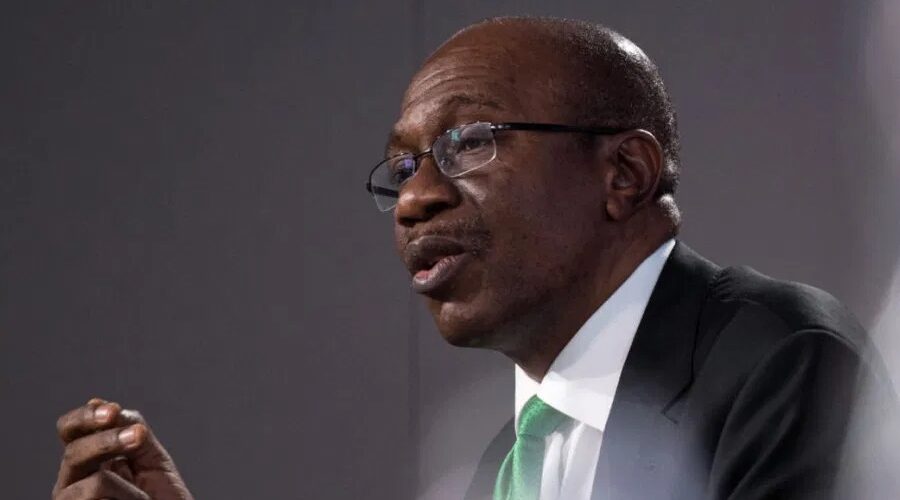Despite rising Covid-19 cases, the Central bank of Nigeria MPC encourages government to avoid locking down the economy again.

The Central Bank of Nigeria encouraged the Federal Government of Nigeria to avoid locking down the economy again as the second wave of Covid-19 causes an increase in confirmed cases and more deaths.
The apex bank cited the negative impact of another lockdown on the economy as a major concern suggesting that sustaining the tepid economic recovery was perhaps a higher priority than curtailing the fast-spreading variant of the second wave virus via another lockdown.
The remarks were contained in the monetary policy communique read out by the central bank governor Godwin Emefiele following the end of the bank’s monetary policy committee meeting, the first for the year.
“While expressing understanding of the public health dilemma of the recent spike in infections, MPC encouraged Government not to consider a wholesome lockdown of the economy so as not to reverse the current gains of the stimulus earlier provided in 2020.” Emefiele
As of January 26, 2020, Nigeria had a total number of Covid-19 cases of about 124, 299, and 1,522 deaths as the second wave continue to spread rapidly across the country. Since December 1st, Nigeria’s positive cases have risen by about 56, 742 cases (83% ) from about 67,557 on the last day of November 2021.
However, the central bank’s recommendations are hinged on the precarious state of the economy which is highlighted throughout a rather sobering MPC communique. In one statement the apex bank admitted that the rise in covid-19 cases was dragging economic recovery backward as more Nigerians become wary of socializing but the spate of economic recovery cannot be jeopardized.
According to the CBN “the outlook for the recovery, however, appears to be dampened by the second wave of the pandemic considering its intensity” yet it still maintained that the previous lockdown was the trigger for another recession.
“In the Committee’s consideration, it noted that the COVID-19 pandemic and the necessary measures put in place by the Government to forestall its public health impact, such as the lockdown and other associated restrictions, contributed to the Nigerian economy going into recession, much like almost every other country in the world.”
CBN Paints a gloomy picture of the economic recovery.
The members of the monetary policy committee also detailed challenges to economic recovery being experienced by the country such as higher inflationary rates, weak PMI numbers, and an increase in non-performing loan ratios of commercial banks.
On increase in non-performing loans
“The Monetary Policy Committee (MPC), however, noted the marginal increase in the Non-Performing Loans (NPLs) ratio which rose to 6.01 percent at end-December 2020 from 5.88 percent at end-November 2020 and above the prudential maximum threshold of 5.0 percent.
While noting that this development is not unexpected under the prevailing circumstances, it urged the Bank to strengthen its macroprudential framework to bring NPLs below the prescribed benchmark.”
On IPMs Numbers.
The MPC noted with concern the continuing sluggish recovery in the Manufacturing and Non-Manufacturing Purchasing Managers’
Indices (PMIs), which remained below the 50-index point benchmark in December 2020, at 49.6 and 45.7 index points, respectively, compared with 50.2 and 47.6 index points during the previous month.
This weak performance was attributed to the resurgence of the pandemic, foreign exchange pressures, increased costs of production, general increase in prices and decline in economic activities.
On Inflation
This uptick was attributed to the increase in both the food and core components of inflation, which rose to 19.56 and 11.37 percent in December 2020, respectively, from 18.30 and 11.01 percent in November 2020. This continued upsurge in food inflation was attributed to the logistical bottlenecks, spurred by the increasing security challenges in many parts of the country, which disrupted food production and supply to the market.
Other factors driving the core inflation, include the recent deregulation of the downstream sector of the oil industry, which led to hikes in the price of Premium Motor Spirit (PMS) and the upward adjustment in electricity tariff.
What This Means.
As the economy slowly recovers from the Covid-19 induced lockdown, several of our major indicators still show there is trouble ahead.
These 3 indicators are some of the most telling.
• Higher non-performing loans, though expected are symptomatic of what businesses are currently going through as they strive to improve their balance sheet. With weaker sales and piling inventory most businesses will continue to struggle to meet up with their debt obligations increasing the number of non-performing loans in the country.
• The Purchasing Managers Index is a critical bellwether for predicting when Nigeria gets out of the recession. As a compilation of how businesses are fairing, an index below 50 suggests we are far from a V-shaped recovery and could face a longer wait to get out of the current recession.
• Nigeria’s galloping inflation rate and economic contraction have created stagflation that puts the economy in a rather precarious situation. Much of the causative factors for the rising inflation are outside of the control of the CBN suggesting a higher inflation rate could persist in the coming months.
• The CBN indicates we could get out of higher inflation rates later this year, but not before it hit its peak as we expect the cost of goods and services to keep rising.
CBN Outlook
Despite the gloomy picture, the CBN expects the economy to recover this year provided the country continues with its economic stimulus.
Available data and forecasts for key macroeconomic variables for the Nigerian economy suggest further improvement in output
growth in the first quarter of 2021. This would be supported by the coordinated and sustained interventions of the monetary and fiscal authorities, including the broad-based stimulus and liquidity injections.
But to ensure its optimistic outlook for the economy comes through, the CBN is recommending that more efforts should be geared towards acquiring and distributing vaccines rather than shutting down the economy.
“Members thus agreed that the Committee’s current priority remains to quicken the pace of the recovery through sustained and targeted spending by the fiscal authority supported by the Bank’s interventions. In this light, it was thought necessary to increase collaboration with the fiscal authority by providing complementary spending to finance productive ventures in a bid to improve aggregate supply and reduce prices.
This is in addition to effectively collaborating with the Presidential Task Force on COVID-19 through the existing private sector Coalition against COVID-19 (CACOVID) to procure and distribute vaccines to fast-track the pick-up of business activities and economic recovery.”
















Add comment